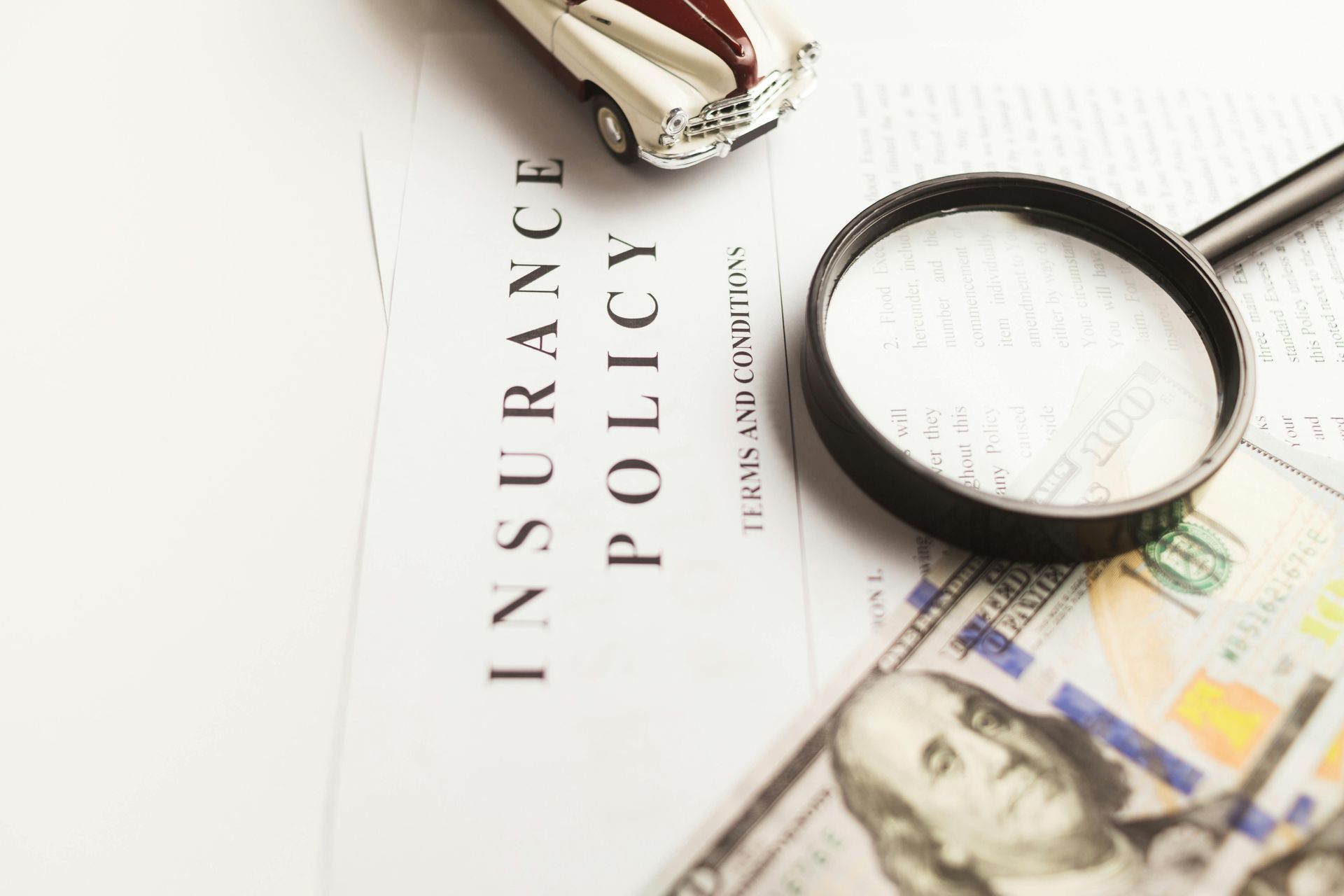Auto Insurance: Minimum Coverage vs. Full Coverage - What's Right for You?
Exploring the realm of auto insurance can be daunting. With a multitude of coverage options, terms like "liability" and "full coverage" thrown around, and varying needs depending on your car and driving habits, choosing the right insurance can be a complex decision. This comprehensive guide cuts through the confusion, explaining the key differences between minimum coverage (liability) and full coverage car insurance, helping you determine the best fit for your situation.

Understanding Liability vs. Full Coverage Car Insurance
Liability Insurance (Minimum Coverage):
- Often mandated by state law, liability insurance protects others on the road in the event you cause an accident.
- It covers bodily injury and property damage to the other driver and their passengers.
- Liability insurance doesn't include coverage for damage to your own vehicle.
Full Coverage Car Insurance:
- Encompasses liability coverage, plus additional protections for your own car.
- Common types of full coverage include:
- Collision insurance: Pays to repair or replace your car if it collides with another vehicle, object, or overturns.
- Comprehensive coverage: Covers damage to your car from non-collision events like theft, vandalism, fire, weather events, and animal collisions.
Choosing Between Liability and Full Coverage: Key Considerations
Several factors influence the decision between minimum and full coverage:
Value of Your Car:
Newer cars, luxury vehicles, or cars with high loan balances often benefit from full coverage to ensure financial protection in case of damage.
Your Driving Habits:
If you drive infrequently, park in a safe area, and have a good driving record, liability coverage might suffice. However, frequent drivers or those with higher risk tolerance might prefer full coverage peace of mind.
Loan or Lease Agreements:
If you're financing or leasing your car, the lender or lessor might require full coverage until the loan is paid off or the lease ends.
Here are some resources to help you determine your state's minimum liability coverage requirements:
- Insurance Institute for Highway Safety (IIHS): https://www.iihs.org
- National Association of Insurance Commissioners (NAIC): https://content.naic.org/
When to Consider Liability-Only Car Insurance
- You drive an older car with a lower market value.
- You park your car in a secure location most of the time.
- You have a good driving record and are comfortable assuming some financial risk.
- You need to save money on your monthly insurance premium.
Advantages of Liability-Only Insurance:
- Lower monthly cost compared to full coverage.
- Suitable for older, less valuable vehicles.
- May be sufficient for low-risk drivers with good driving records.
When Full Coverage Car Insurance Might Be Right For You
- You own a new car, luxury vehicle, or one with a high loan balance.
- Your car is frequently parked on the street or in unsecured locations.
- You want comprehensive protection against various damage scenarios.
- You have a history of accidents or prefer peace of mind from full coverage.
Advantages of Full Coverage Insurance:
- Provides financial protection for repairs or replacement of your car in case of accidents, theft, vandalism, and other covered events.
- Offers peace of mind knowing your car is comprehensively insured.
- May be required by lenders or lessors if you're financing or leasing your car.
Frequently Asked Questions
Do I need full coverage on my car?
There's no one-size-fits-all answer. Consider your car's value, driving habits, risk tolerance, and financial situation. If you own a newer car or have a loan, full coverage is likely recommended.
What is the difference between liability and full coverage?
Liability covers others' injuries and property damage in an accident you cause. Full coverage includes liability, plus protection for your own car from various damage scenarios.
What is the difference between comprehensive and collision coverage?
Collision covers damage to your car from collisions with other vehicles or objects. Comprehensive covers non-collision events like theft, vandalism, fire, weather, and animal collisions.
When should I switch from full coverage to liability?
 Button
ButtonIf your car's value has significantly depreciated, you might consider switching to liability-only insurance to save money. However, consult your insurance agent to ensure it's the right decision for your circumstances.
Is full coverage car insurance worth it?
 Button
ButtonFor newer cars, financed vehicles, or those with higher risk factors, full coverage can be valuable for financial protection. However, for older, less valuable cars with low-risk drivers, liability coverage might be sufficient. In the end, your choice will hinge on your specific needs and comfort with risk.
Additional Considerations
- Deductible: This is the initial amount you must pay before your insurance coverage begins. Choosing a higher deductible lowers your premium but increases your financial responsibility in case of a claim.
- Discounts: Many insurance companies offer discounts for factors like safe driving habits, multiple car policies, good student discounts, and having security features installed in your car. Explore available discounts to potentially lower your premium.
- Regular Reviews: Your insurance needs might change over time. Regularly review your policy (at least annually) to ensure you have the right coverage as your car's value depreciates or your driving habits evolve.
Finding the Right Auto Insurance for You
With a better understanding of liability vs. full coverage car insurance, you're equipped to make informed decisions. Here are some tips for finding the right auto insurance:
Compare Quotes:
Request quotes from several insurance companies to evaluate coverage choices and pricing. Utilize online tools, contact local agents, or visit company websites directly.
Consider Your Needs:
Evaluate your car's value, driving habits, risk tolerance, and budget to determine the right coverage level.
Read Reviews and Ratings:
Research online reviews and consult independent rating agencies like J.D. Power to understand a company's customer satisfaction ratings and financial stability.
Work with a Trusted Agent:
A local insurance agent can guide you through the insurance selection process, answer your questions, and help you find a policy that aligns with your specific needs.
RVIS Insurance Agency: Your Trusted Partner for Auto Insurance
At RVIS Insurance Agency, we understand that navigating the complexities of auto insurance can be overwhelming. We're here to empower you with the knowledge and resources needed to make informed decisions and find the right coverage for your car.
Our team of experienced agents specializes in helping California drivers secure comprehensive and affordable auto insurance solutions. Whether you need minimum liability coverage for an older car or comprehensive protection for a newer vehicle, we'll work closely with you to understand your needs and find the perfect fit.
Here's what sets us apart:
- Personalized Service: We take the time to understand your unique driving habits, car value, and risk tolerance to tailor an insurance solution that meets your specific needs.
- Competitive Rates: We leverage our strong relationships with leading insurance companies to secure competitive quotes and ensure you get the best possible value for your premium.
- Unwavering Support: We're here for you beyond just obtaining a policy. Our team is available to answer your questions, guide you through the claims process, and ensure a smooth experience throughout your insurance journey.
Don't navigate the world of auto insurance alone!
We'll help you understand your coverage options, compare quotes, and find the perfect auto insurance policy for your peace of mind.
Remember:
- The right auto insurance protects you financially in case of accidents and other covered events.
- Consider your car's value, driving habits, risk tolerance, and budget when choosing coverage.
- Compare quotes, explore discounts, and work with a trusted insurance agent.
- Regularly review your policy to ensure it continues to meet your needs.
With RVIS Insurance Agency by your side, you can drive with confidence, knowing you have the right insurance protection in place.
Contact Us
We will get back to you as soon as possible.
Please try again later.
2470 Berryessa Rd, Suite #B, San Jose, CA 95133
| RVIS Insurance Agency | All Rights Reserved




